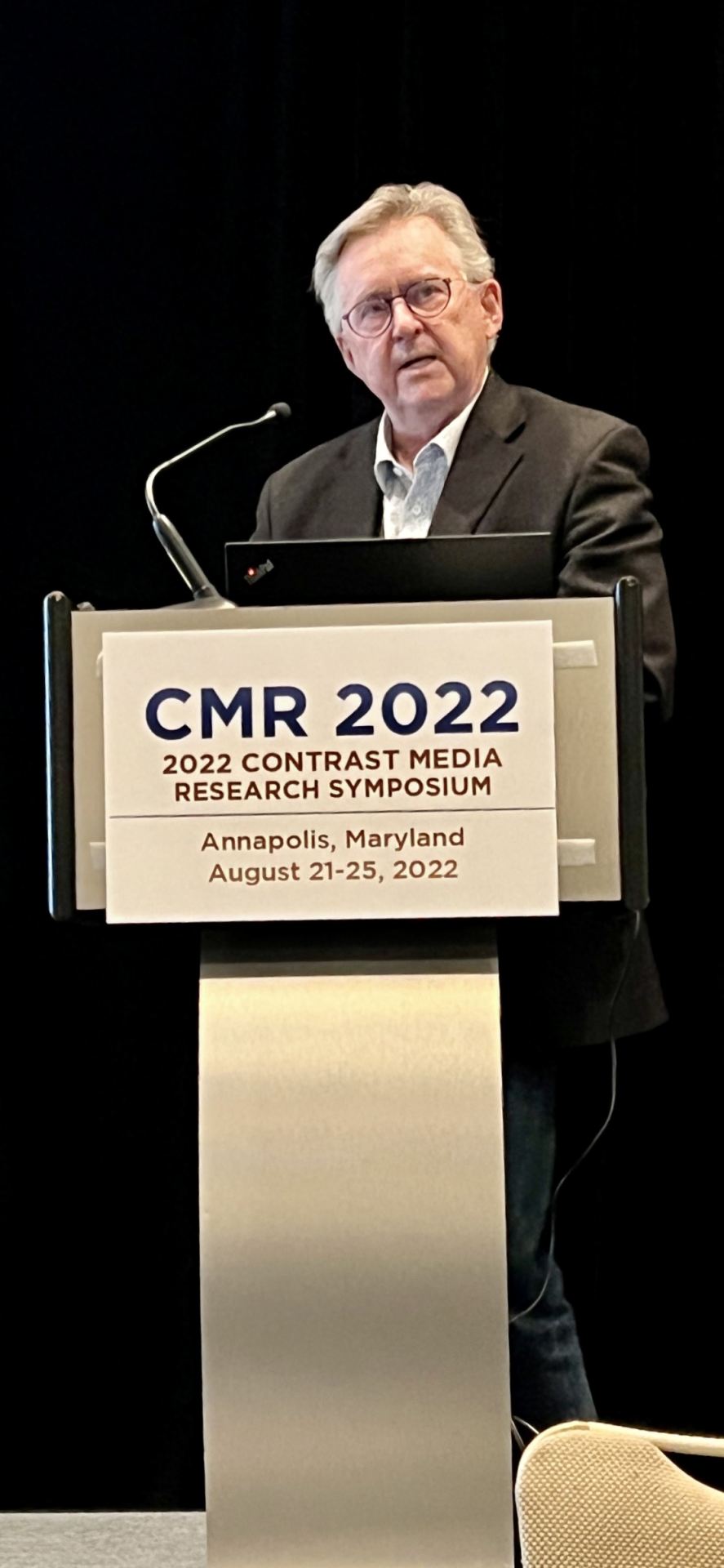
Dean Sherry, PhD, professor of chemistry and biochemistry at The University of Texas at Dallas and professor of radiology and former director of the Advanced Imaging Research Center at UT Southwestern Medical Center, recently won the Harry Fischer Medal for lifetime contributions to the development of MRI contrast agents.
Last week in Annapolis, Maryland, the Contrast Media Research (CMR) symposium held its biennial meeting and presented Sherry with the honor.
Sherry said he was surprised by the CMR group a few weeks ago.
“The award selection committee informed me that I had won the Harry Fischer award about one month prior to the meeting. Their email to me did come as a complete surprise because I had not been an active participant in previous CMR meetings. The CMR is a unique meeting because it is industry sponsored and everyone who is invited to attend is invited to speak,” Sherry said.
“This is a great honor capping off a wonderful week of celebration,” he said.
Sherry holds the Cecil & Ida Green Distinguished Chair in Systems Biology at UT Dallas and his research interests include lanthanide-chelate chemistry, Nuclear Media Resonance of paramagnetic systems, the use of 13C NMR techniques to monitor intermediary metabolism, and responsive MRI agents for imaging specific biological events in tissues.
He has published 486 peer-reviewed research articles, contributed chapters to 28 books, and holds 34 US and foreign patents.
“You deserve this recognition for your outstanding research in the field of MRI,” said Dr. Mihaela Stefan, the Eugene McDermott Professor and head of the Department of Chemistry and Biochemistry at UT Dallas.
“We are very fortunate to have you in our department,” Stefan said.
The Harry Fischer Medal was created by the senior organizing members of Contrast Media Research [CMR].
CMR was founded by Elliot Lasser, San Diego, in 1970. The group says it has been and continues to be a gathering where top-level researchers from academia and the industry meet to exchange up-to-date thoughts and new data in a collegial and open symposium.
Harry Fischer, a practicing radiologist, spent his research career in this field, especially focused on X-ray agents, and, in the latter portion of his career, particulate formulations of X-ray agents.
The award honors a single scholar who has made outstanding research contributions to the field of contrast agents over a career.
“My award lecture was titled, ‘The joy of scientific discovery: Playing with the f-elements,’ which covered the history of gadolinium-based contrast agents, new ideas about using other lanthanide ions, and, of course, my current research.
“It was great for me because industry representatives from many companies were in the audience and this provided me with an opportunity to get them excited about an agent I hope to translate into a clinical medicine, a zinc sensor for early detection of prostate cancer,” Sherry said.
CMR publishes abstracts in a peer-reviewed journal, Investigative Radiology.
Currently, Sherry is seeking funding for additional toxicity studies in animals needed to get his zinc sensor approved as an investigative new drug (IND) by the FDA.
“Once we gain approval for a small human clinical trial and show the agent is safe and useful for identifying prostate lesions, then big pharma will be interested in paying for the remaining clinical trials needed for general approval. There seems to be great interest in the technology already, so I remain optimistic,” Sherry said.
Help us leave the planet a better place for future generations. Your support for the School of Natural Sciences and Mathematics funds scientific discoveries with real-world applications, student and faculty recruitment, and academic scholarships.